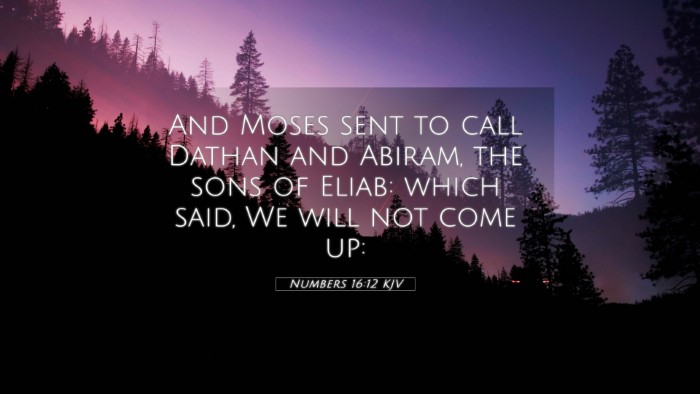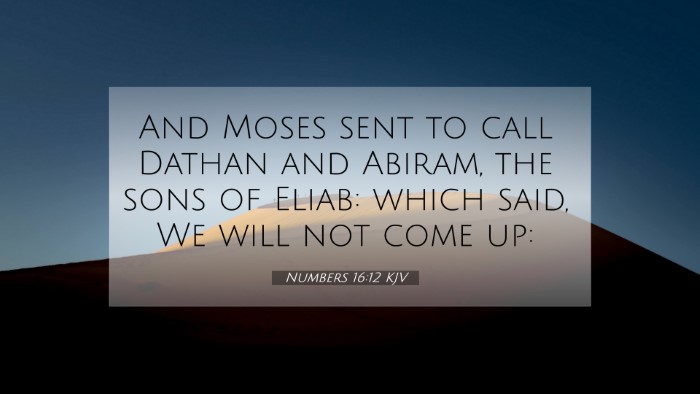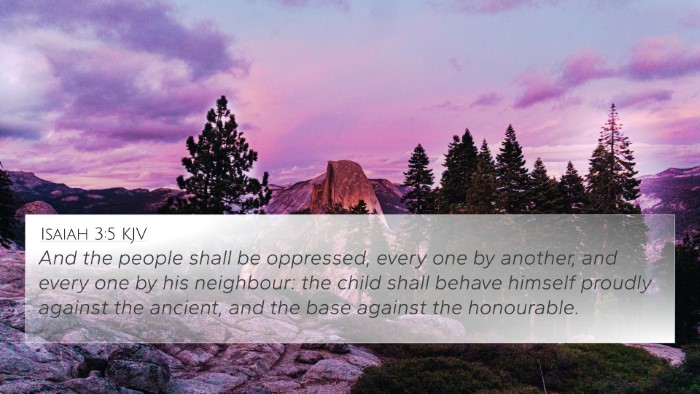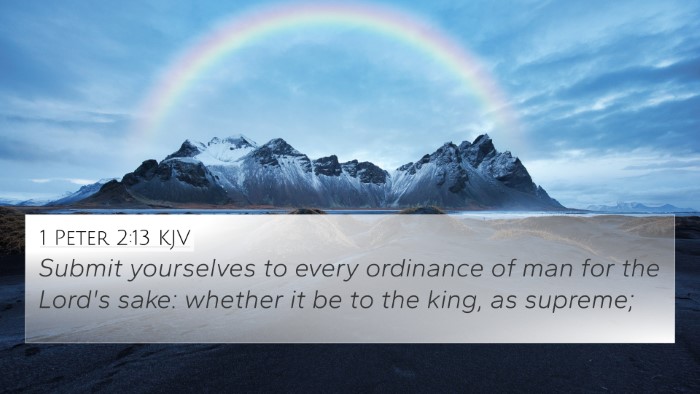Understanding Numbers 16:12
Numbers 16:12 states: "And Moses sent to call Dathan and Abiram, the sons of Eliab: which said, We will not come up." This verse captures a key moment of rebellion against Moses’ leadership, emphasizing themes of authority, rebellion, and accountability in the face of divine leadership.
Contextual Background
This passage occurs within the larger narrative of Numbers 16, which narrates the rebellion of Korah and his allies against Moses and Aaron's leadership. The reaction of Dathan and Abiram showcases not just personal defiance but also a broader challenge to the established order ordained by God.
Thematic Connections in Scripture
The defiance of Dathan and Abiram touches on themes prevalent throughout the Bible. As we analyze this verse, we should seek Bible verse cross-references that highlight the dynamics of leadership and rebellion in God's plan.
Key Cross-References
- Exodus 16:2-3 - The Israelites' complaints against Moses; reflects a history of rebellion.
- Numbers 12:1-3 - Miriam and Aaron’s critique of Moses' leadership, paralleling their criticism of God’s chosen leader.
- Acts 7:28 - Stephen’s reference to Moses during his defense, highlighting the resistance Moses faced.
- Hebrews 13:17 - Encouragement to obey and submit to spiritual leaders, linking the New Testament perspective on authority.
- 1 Corinthians 10:10 - Paul references the Israelite rebellion, warning against similar attitudes of discontent.
- Jude 1:11 - Alludes to the rebellion of Korah, drawing a direct link to the consequences of rebellion against God’s appointed leaders.
- Psalm 106:16-17 - Reflects on the jealousy of Dathan and Abiram, shedding light on their motivations.
Interpretation From Commentaries
Insights from noted commentators enhance our understanding of this verse:
Matthew Henry's Commentary
Matthew Henry notes that Dathan and Abiram's refusal to meet with Moses exemplifies the obstinate heart of rebellion. Their statement “We will not come up” signifies a disdain for the authority established by God through Moses, illustrating a deeper spiritual malady—an unwillingness to submit to divine order.
Albert Barnes' Notes
Albert Barnes highlights the repercussions of Dathan and Abiram’s actions. He observes that their refusal to answer Moses indicates not just personal animosity but also a challenge against God's chosen leadership. This betrays a lack of understanding of the serious nature of the calling and the divine purpose behind Moses’ leadership.
Adam Clarke's Commentary
Adam Clarke emphasizes that their refusal reflects a growing schism among the Israelites. He discusses the implications of their rebellion and warns against the dangers of divisive actions that undermine God-given authority, leading ultimately to tragic consequences for the nation.
Lessons for Today
The defiance exhibited by Dathan and Abiram serves as a cautionary tale for contemporary believers about the importance of respecting God’s authority and the appointed leaders in the church. Understanding their grievances and the ensuing consequences can provide insights into how we should approach authority in our own lives.
Concluding Thoughts
Numbers 16:12 encapsulates a moment of significant resistance to divinely appointed leadership, providing rich ground for comparative Bible verse analysis and Bible verses that relate to each other. As we study this verse alongside its cross-references, we gain deeper insight into the nature of rebellion and the importance of divine order in the community of faith. By understanding these connections, we engage in an inter-Biblical dialogue that enhances our spiritual understanding and commitment.






